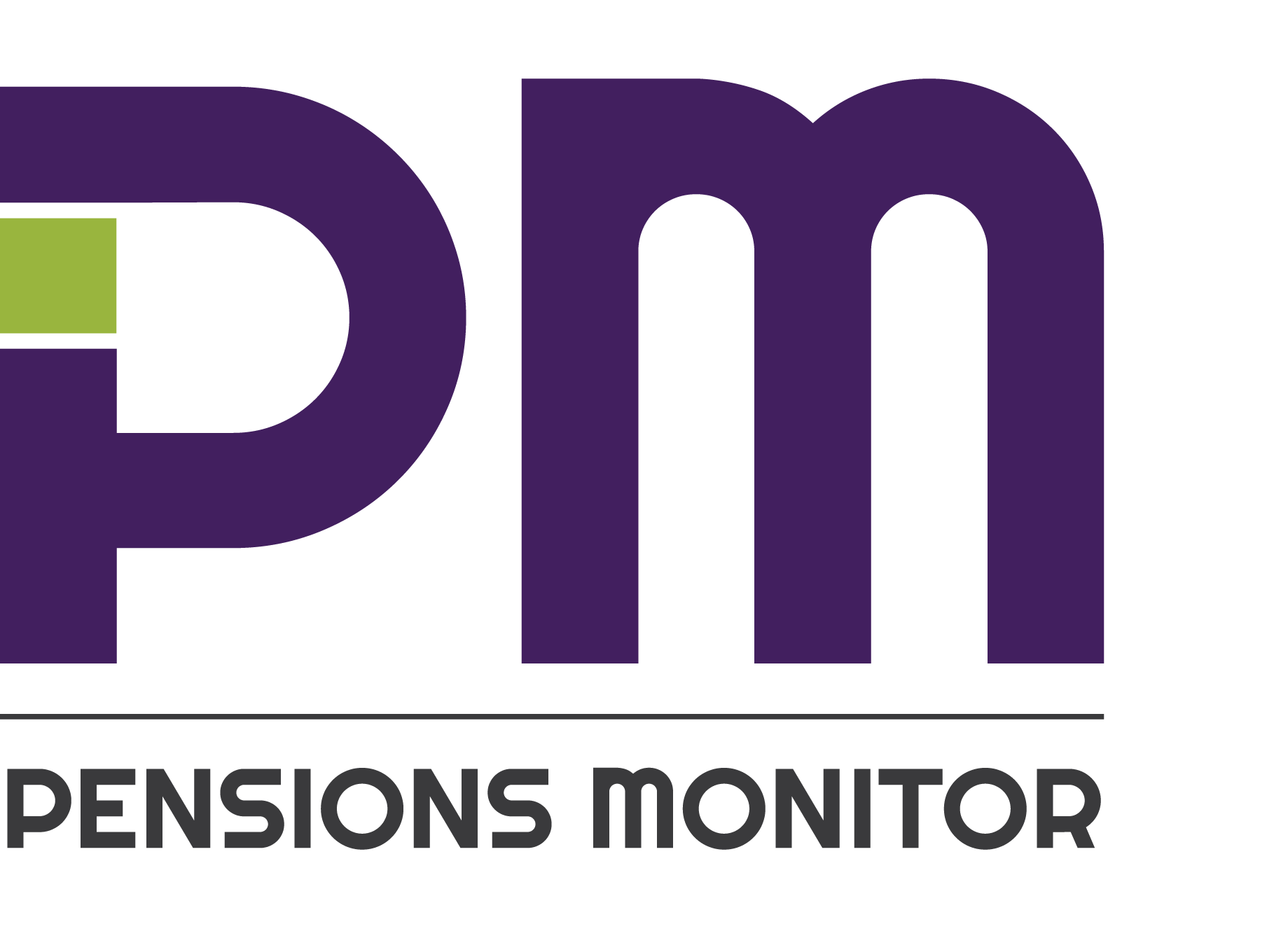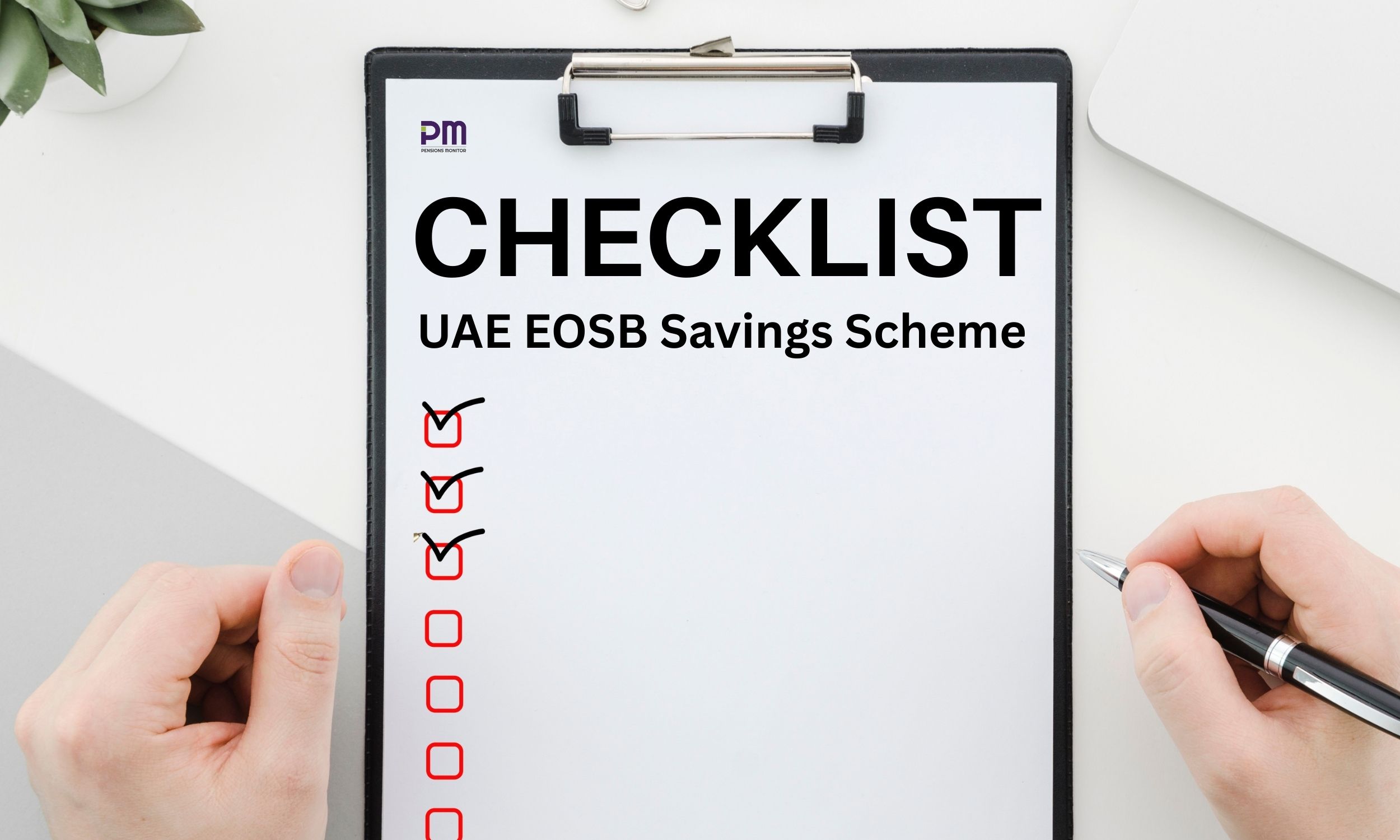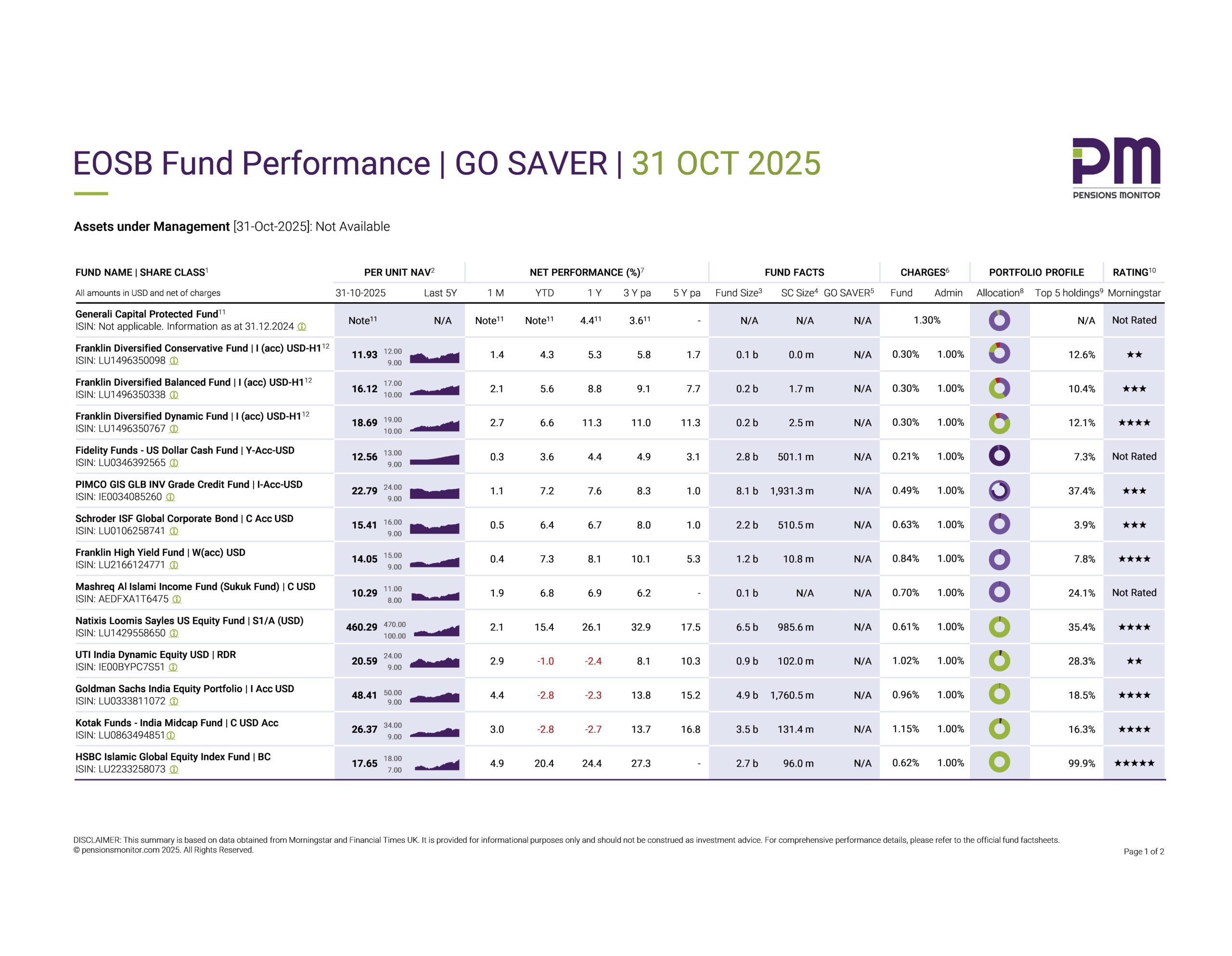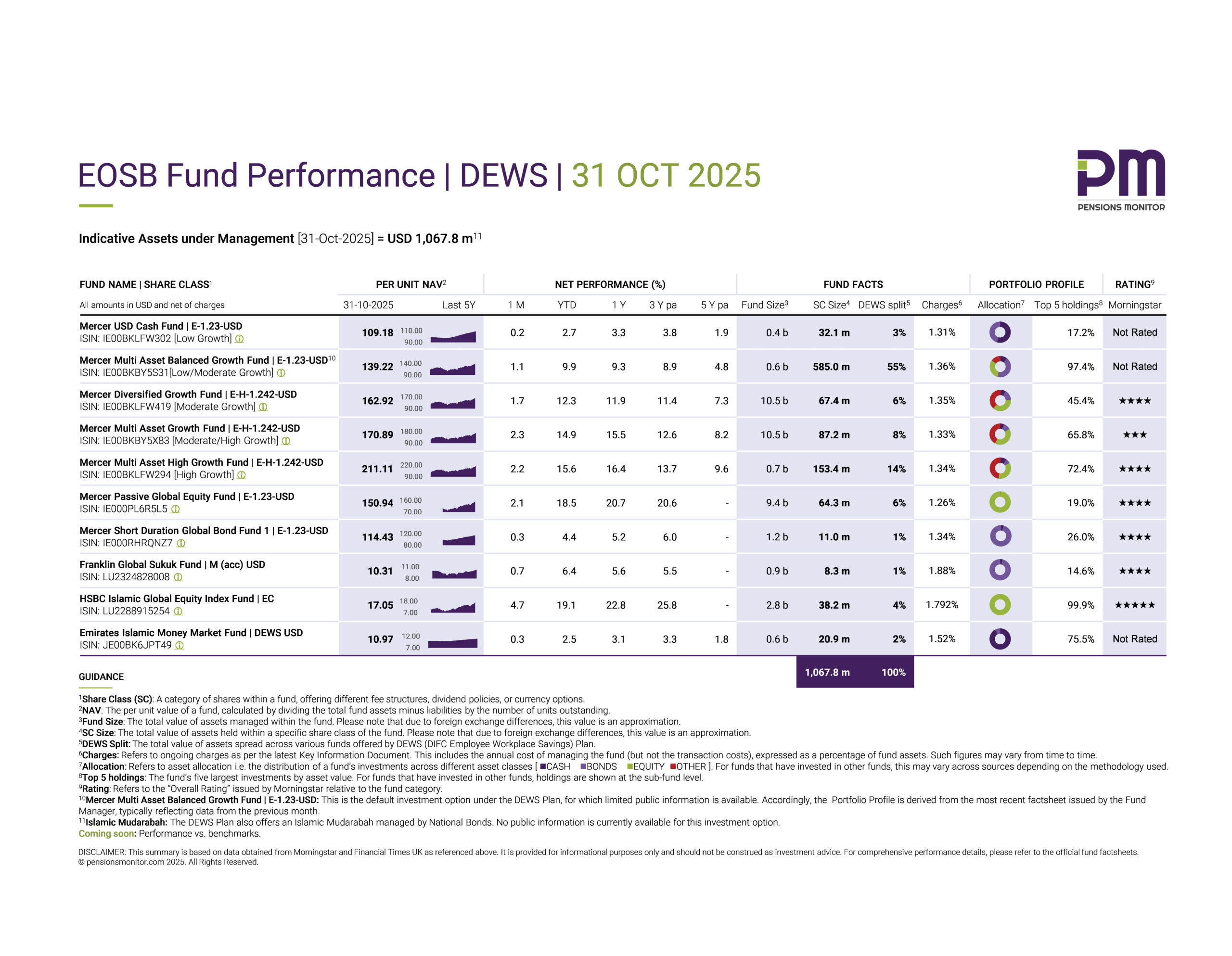
Over the past few weeks, a series of updates have shown that the UAE’s End-of-Service Benefits (EOSB) savings market is heating up. Some fund managers are now in advanced stages of integration with federal data systems to speed up employer onboarding and automate monthly HR processes, with FAB among those that have already completed the step.
Now, there’s more big news.
National Bonds, one of the four approved EOSB Fund Managers, recently released detailed information about its EOSB Umbrella Fund through the Master Prospectus published on its website. This is a big move for the UAE’s nascent EOSB Savings industry that has long been waiting for someone to go first.
This disclosure gives the public, for the first time, a clearer picture of how the Fund works, who’s managing what, and what rights employers and employees have.
What’s in the Master Prospectus?
The Master Prospectus is a 71-page document that outlines the terms that apply across all Sub-Funds under the National Bonds EOSB Umbrella Fund which is Shariah-compliant. Each Sub-Fund will have a separate “Supplement” with more specifics.
Currently, National Bonds has only one active Sub-Fund: The National Bonds Capital Protected Shariah Compliant Fund, which is listed on the Securities and Commodities Authority’s (SCA) website. More on this later.
First, let’s note the key points from the Master Prospectus.
Fund organization and governance
Who is in-charge? At the top of the structure sits National Bonds, in dual roles as:
- Fund manager – responsible for overall fund strategy and management including the power to appoint or remove other service providers; and
- Units registrar – maintains participants/unitholders records of the Sub-Fund/s.
Other service providers include:
Standard Chartered Bank (UAE) as both:
- Custodian – safeguards the fund’s assets and manages inflows/outflows; and
- Fund Administrator – calculates Net Asset Value (NAV) of the Sub-Funds. NAV will be calculated daily and daily profit (or loss) is defined as the difference in NAV between two consecutive business days (measured at 5 PM).
Minhaj Advisory LLC has been appointed as Shariah Advisor for the Fund and will issue annual reports on compliance.
Baker McKenzie LLP as Legal Advisor will support the Fund’s legal requirements and Ernst & Young UAE as External Auditor will sign off the following reports on each Sub-Fund that will be published on National Bond’s website, as per SCA regulations:
- Semi-annual financial report (within 45 days of each half-year)
- An annual audited financial report (within 3 months of year-end)
Since a semi-annual report has not yet been published, it is likely that the first annual report will be available by 31 March 2026.
The Master Prospectus also states that a monthly fact sheet for each Sub-Fund will be published on National Bonds’ website. This is welcome news, and we at Pensions Monitor look forward to reviewing the performance of the Sub-Fund when the information becomes available. Sign up for our newsletter to receive free updates!
Governance through the Fund Board
The Fund’s internal governance is anchored by a three-member Fund Board, comprising senior leaders and board members of National Bonds.
Sub-Funds are supervised by an Investment Committee comprising a board-appointed Activity Manager, Fund Investment Manager and Compliance Officer.
The Investment Committee reports to the Fund Board and must meet at least once every three months. Its decisions will also be published on National Bond’s website, another nod to operational transparency.
Fund Structure
Sub-Funds are structured by Share Classes
Sub-Funds will offer different share classes based on employee category, each with different rights for a) profit distribution, b) swapping, c) redemption, and d) voting:
- Share Class A (Employer Basic Contributions for Skilled Employees)
- Share Class B (Employer Basic Contributions for Unskilled Employees); and
- Share Class C (Additional Voluntary Contributions (AVCs) by Employees)
Employers must identify whether an employee qualifies as Skilled or Unskilled, and must notify the Fund Manager of any change in Employee status within a set number of working days as per the Employer Agreement. When an employee’s category changes from say, Unskilled to Skilled, then units are converted to the relevant Share Class through compulsory redemption and issuance. We will discuss the implications of a compulsory redemption and issuance in a separate article.
Class A and B Units are held by Employers on behalf of Employees and can only be redeemed or transferred to Employees when employment ends, subject to the Employer Agreement with National Bonds and MOHRE approval.
If the Employer Agreement ends, the Employer can redeem Class A or B Units as per terms set up in the relevant Supplement. Any money from the redemption can only be reinvested in a fund approved by both SCA and MOHRE.
On the other hand, AVCs in Share Class C Units can be redeemed or transferred by the respective Employee, as outlined in the relevant Supplement.
Voting rights at General Assemblies for Class A and B are held by Employers. Employees hold voting rights only for Class C Units. Subject to SCA approval, a “General Assembly of Unitholders” may be convened where consent from any or all of the Unitholders of a Sub-Fund is required by a) the Fund Manager, or b) the Custodian, or c) one or more Unitholders who, alone or together, holding at least 5% of Fund NAV.
This voting structure gives Unitholders meaningful influence, including the power to remove the Fund Manager through a Special Resolution passed by the General Assembly, with prior approval from the SCA.
Alternative termination of the Fund Manager
The Fund Manager may also be dismissed directly by SCA in cases of serious violations or in the public interest. Optionally, the Fund Manager can resign with 60 business days’ notice, subject to SCA approval and the appointment of a suitable replacement.
Such removal or resignation of the Fund Manager does not dissolve the Fund.
Transfer of Unit ownership to others is restricted
Lastly, ownership of Units can only be transferred in special cases like inheritance, title deed transfers to relatives, or by court order and must be approved by the Fund Manager, MOHRE, and SCA through the Registrar.
Could this make having a will registered in the UAE even more important for non-Muslim Unitholders going forward? We will discuss in a separate article.
National Bonds Capital Protected Shariah Compliant Fund
Currently, National Bonds offers only one Sub-Fund: The National Bond’s Capital Protected Shariah Compliant Fund that is available to both skilled and unskilled employees.
The Master Prospectus clarifies that this Sub-Fund does not provide a formal capital guarantee from the Fund Manager or any insurance provider. Instead, capital protection is derived from the conservative nature of its underlying assets: limited to UAE-based, Shariah-compliant bank deposits and sovereign Sukuk issued by UAE federal and local governments.
In addition to these prudent investments, the Sub-Fund follows strict portfolio limits:
- No more than 10% in any single security
- No more than 25% in a single group
- Maximum maturity of 397 days per security
- Weighted average maturity capped at 180 days
This Sub-Fund is designed to deliver money-market-like returns, after fees and expenses.
A unique feature is its daily profit calculation and distribution, done by issuing new units to Unitholders.
There are no subscription or redemption fees, and the annual management fee is 0.75% of Assets under Management (AuM), which in our modest opinion, is quite competitive. There’s currently no public information to compare it directly with the other three fund managers – FAB, Lunate and Daman Investments (we’re watching this space closely), but compared to DIFC’s DEWS and GO SAVER, this Sub-Fund is relatively low cost.
Conclusion
National Bonds’ disclosure of its Master Prospectus is a positive and important step for the UAE’s EOSB savings market. It has brought much-needed clarity and may encourage other fund managers to share more details soon.
The Master Prospectus also throws more light on how the UAE’s EOSB Savings Scheme is structured, overseen and controlled. While it’s different from global models that usually include a Trustee, it still offers a strong level of governance.
For now, National Bonds has only one active Sub-Fund, which is low-risk, highly liquid, low-cost and designed to protect EOSB savings while staying within SCA’s guidelines. We look forward to reporting on the performance of this Sub-Fund in due course.
There’s also a notable disclosure in the Master Prospectus that National Bonds had not enrolled its own employees as at the date of its issuance. Whether this has changed since then is not known, but it raises an interesting question for the market: Have any of the approved fund managers signed up their own employees into the scheme that they administer for clients? We will look at this in a separate article. Stay tuned!




